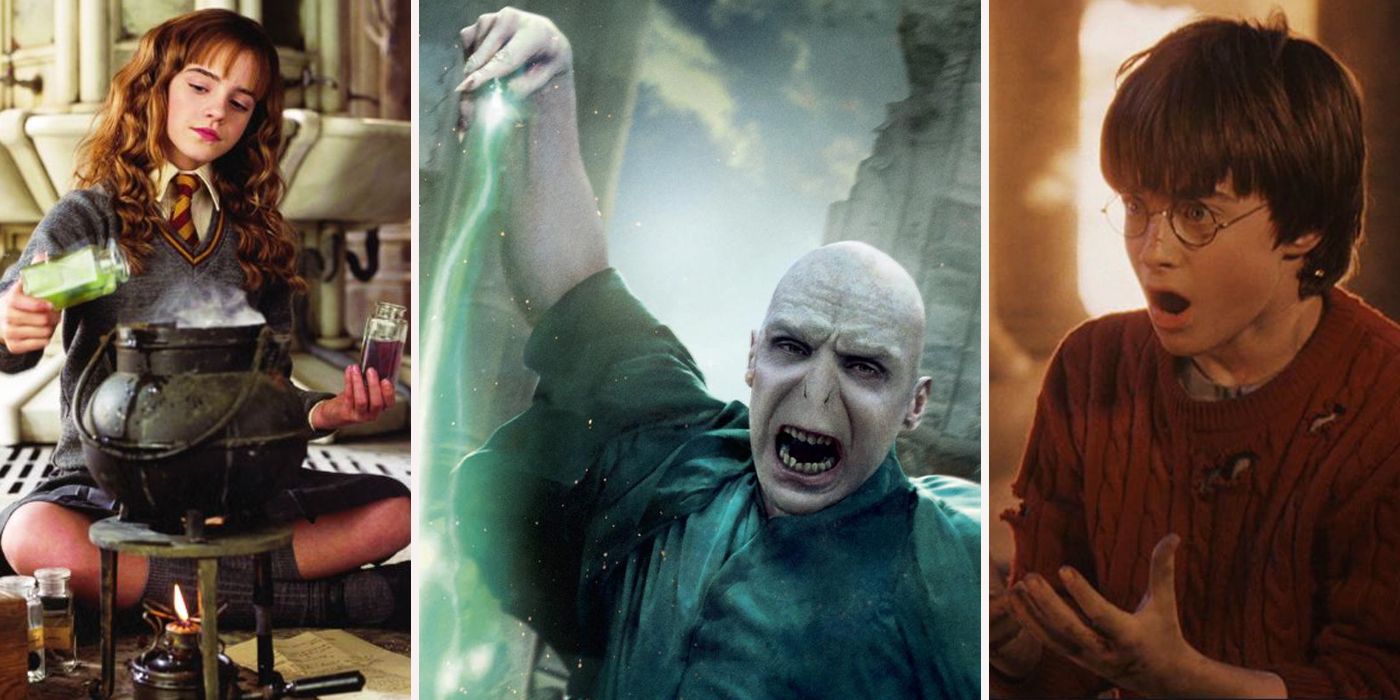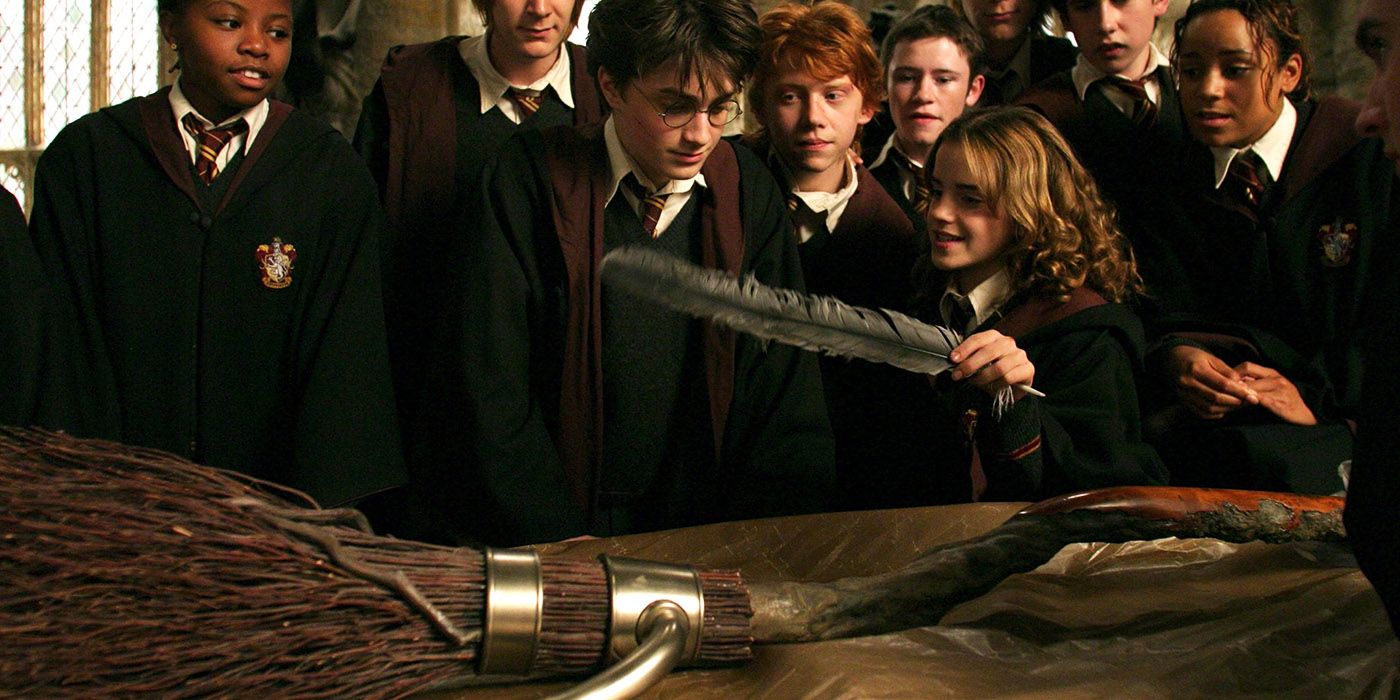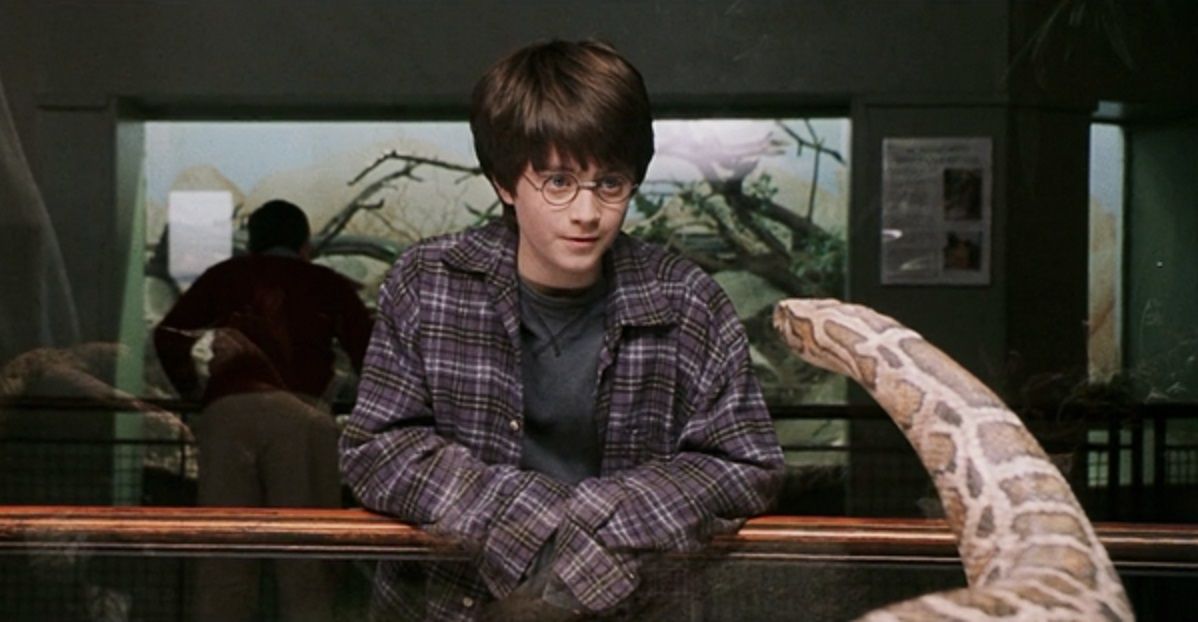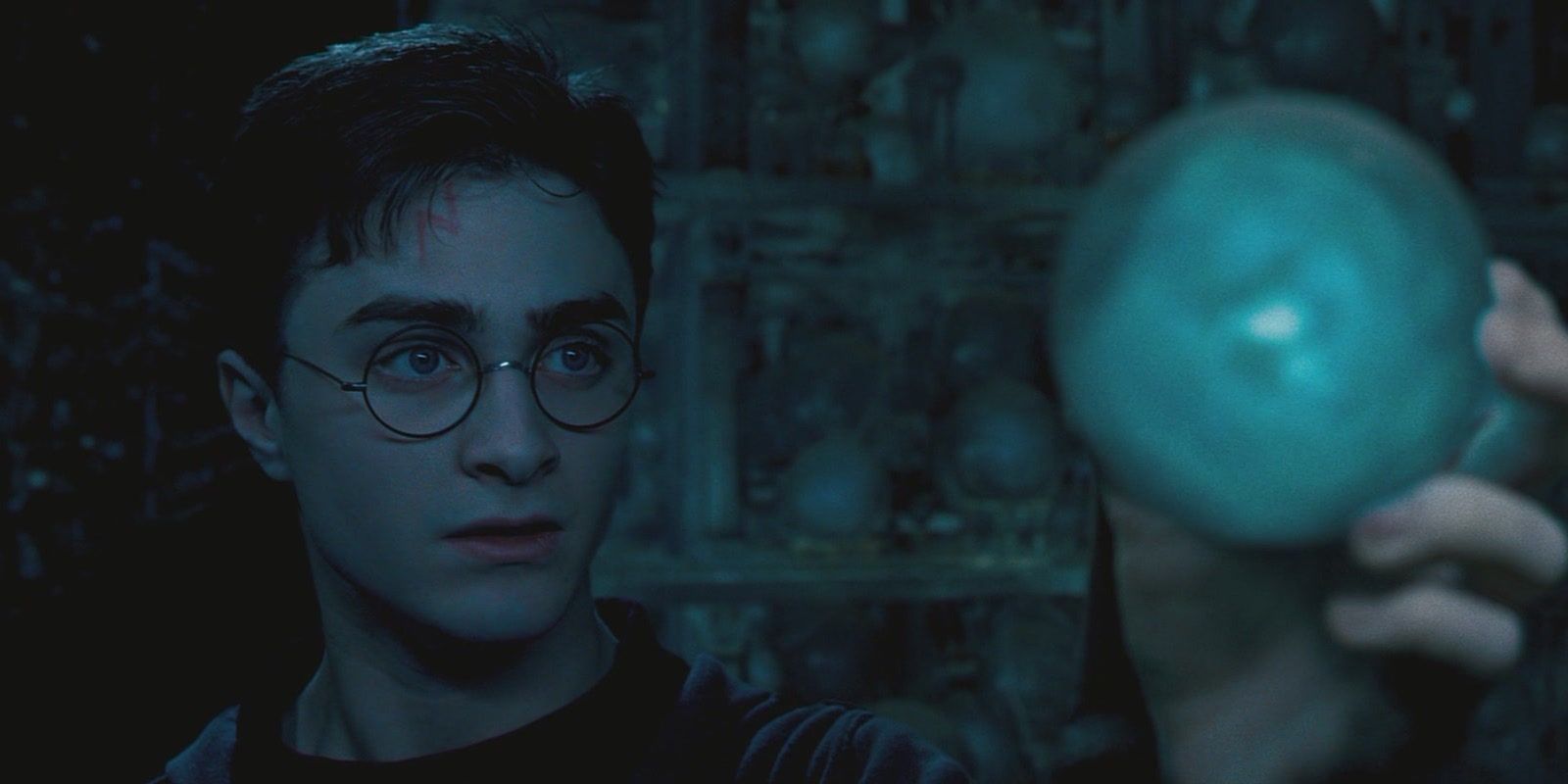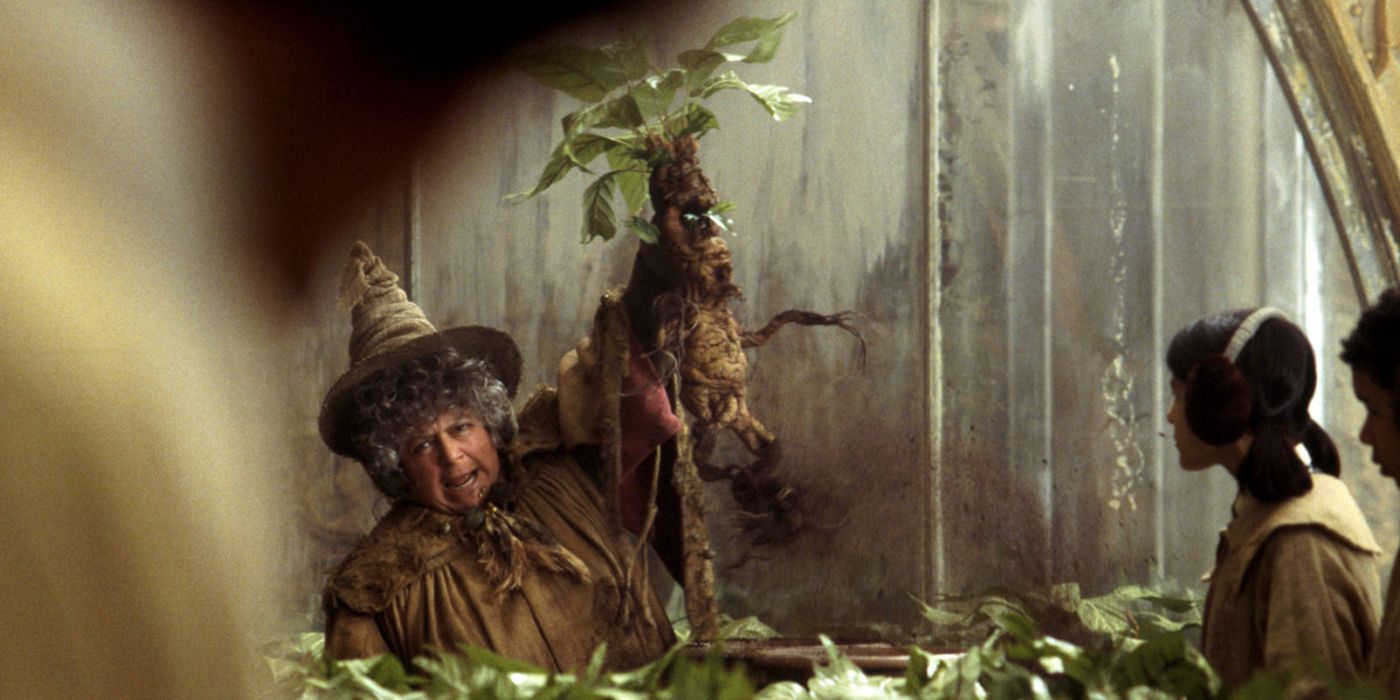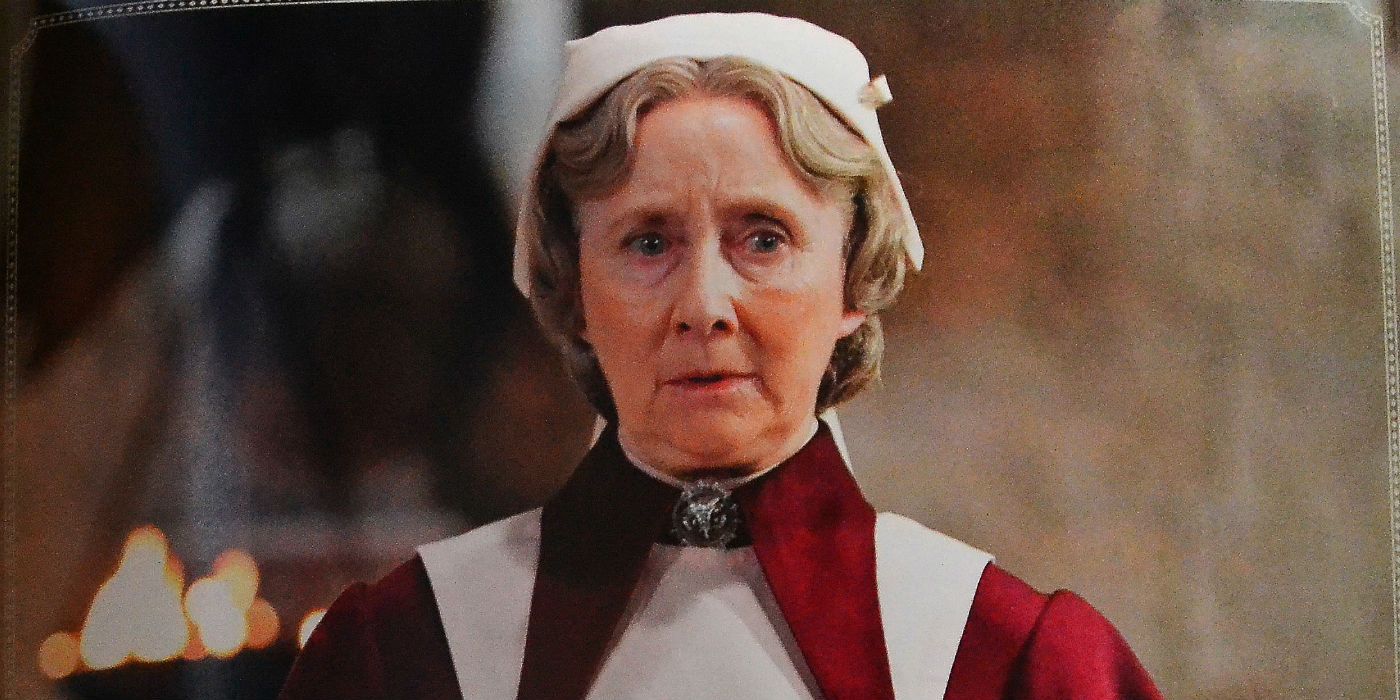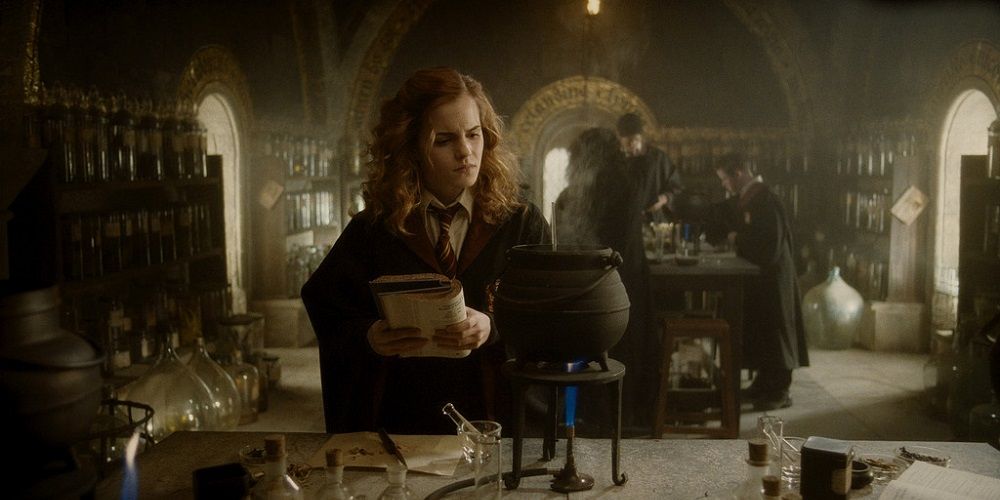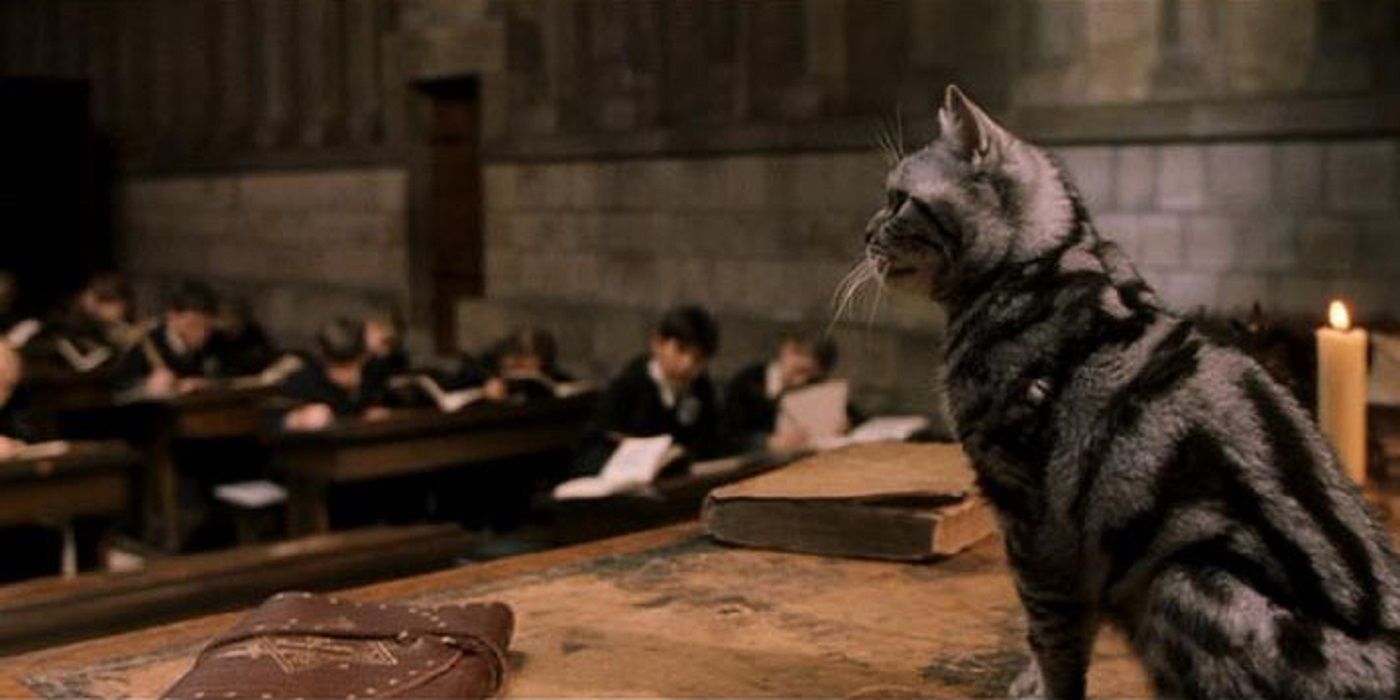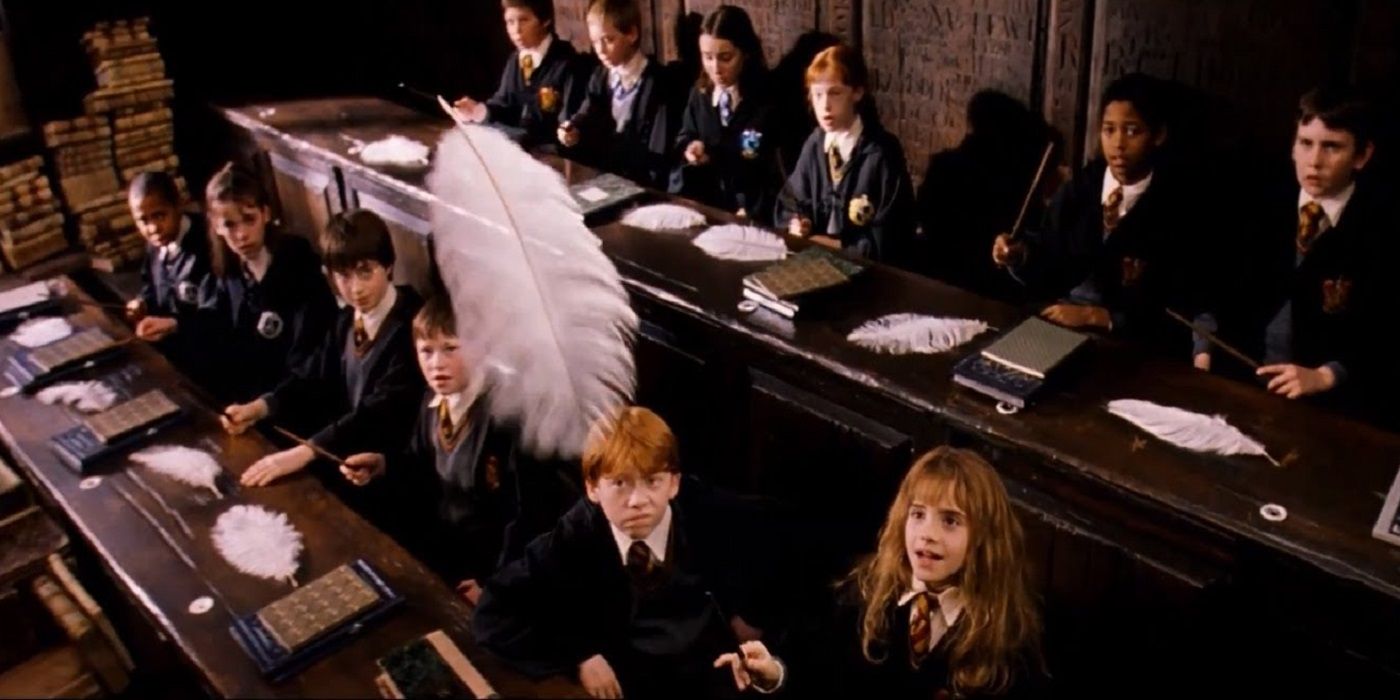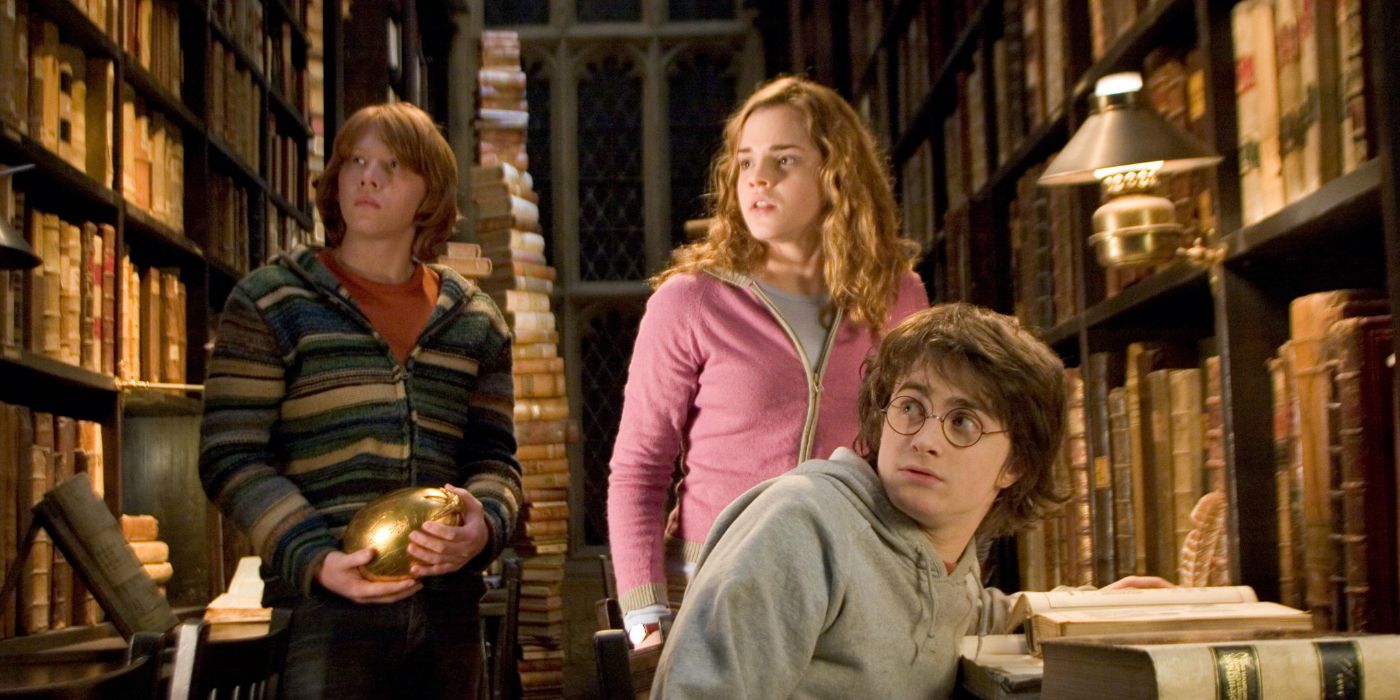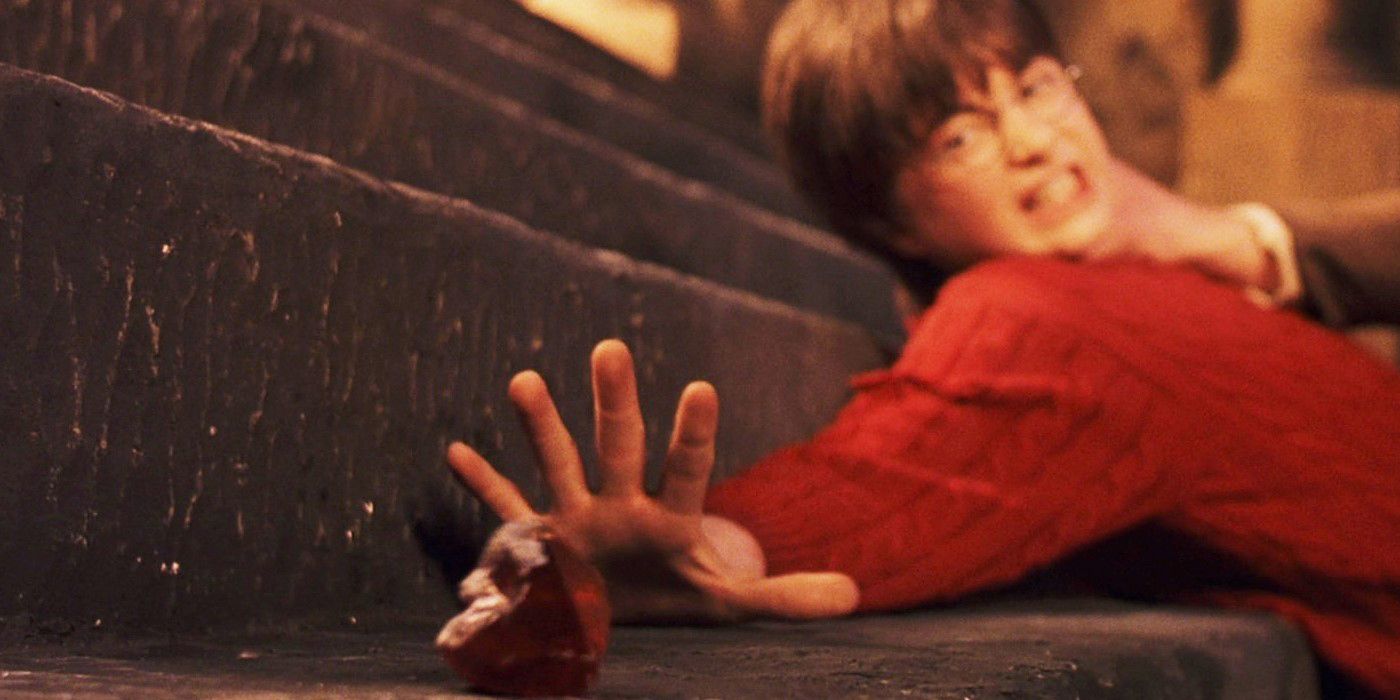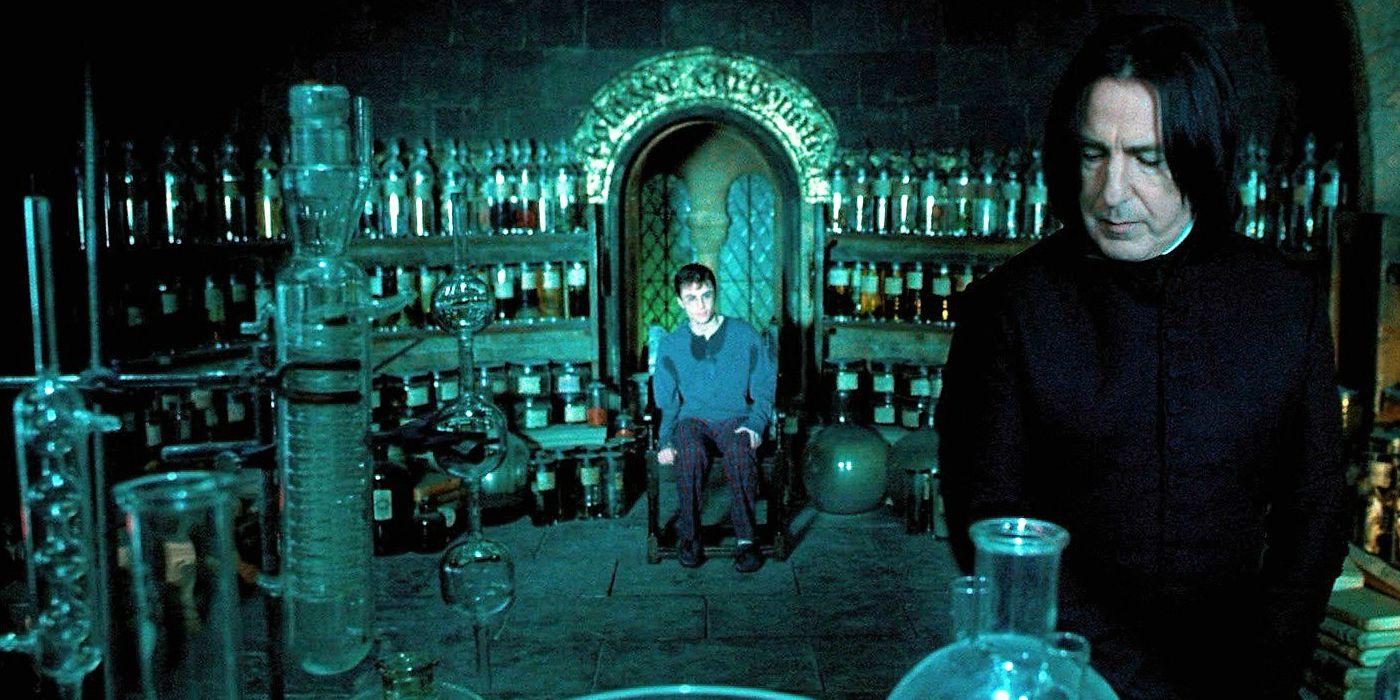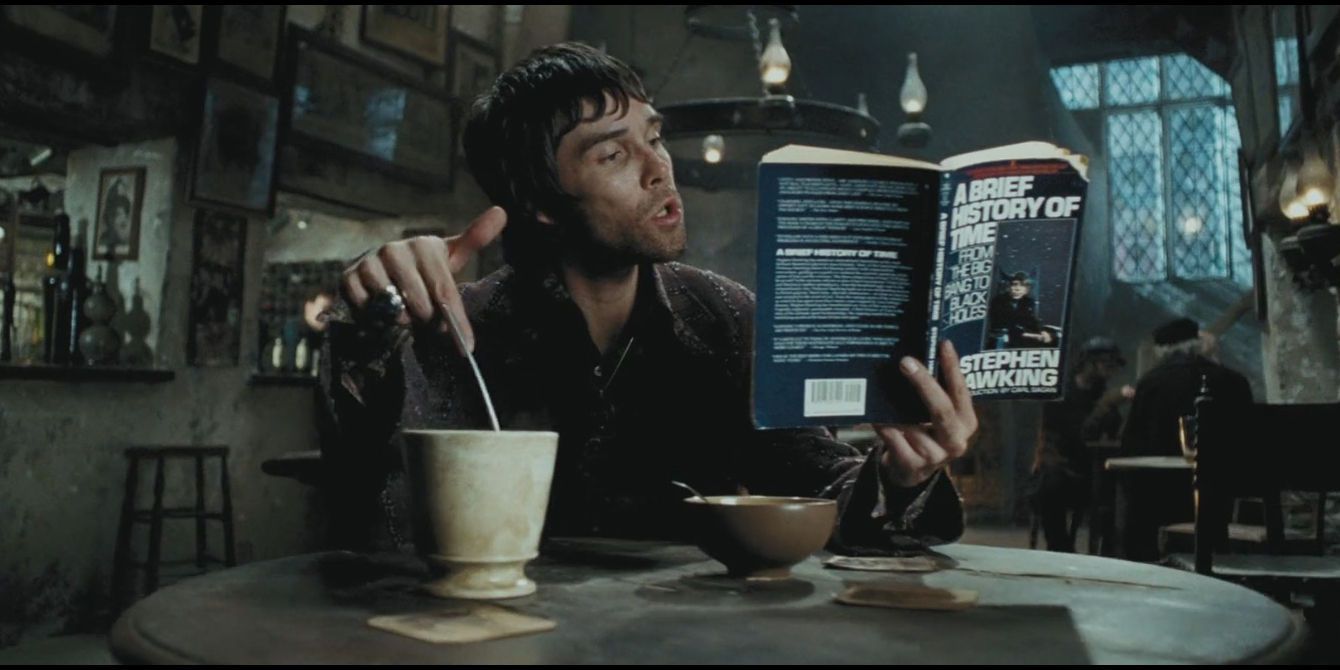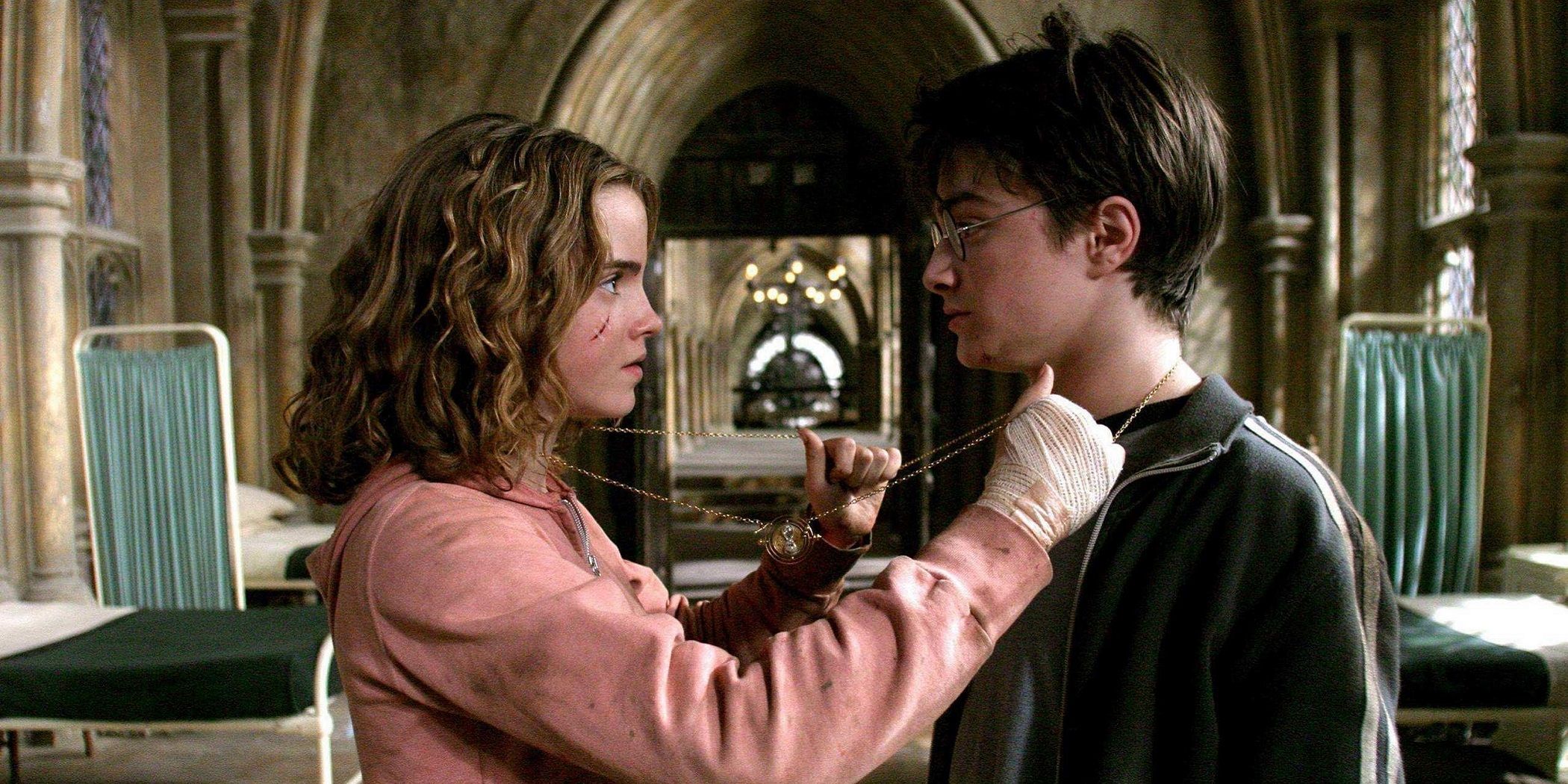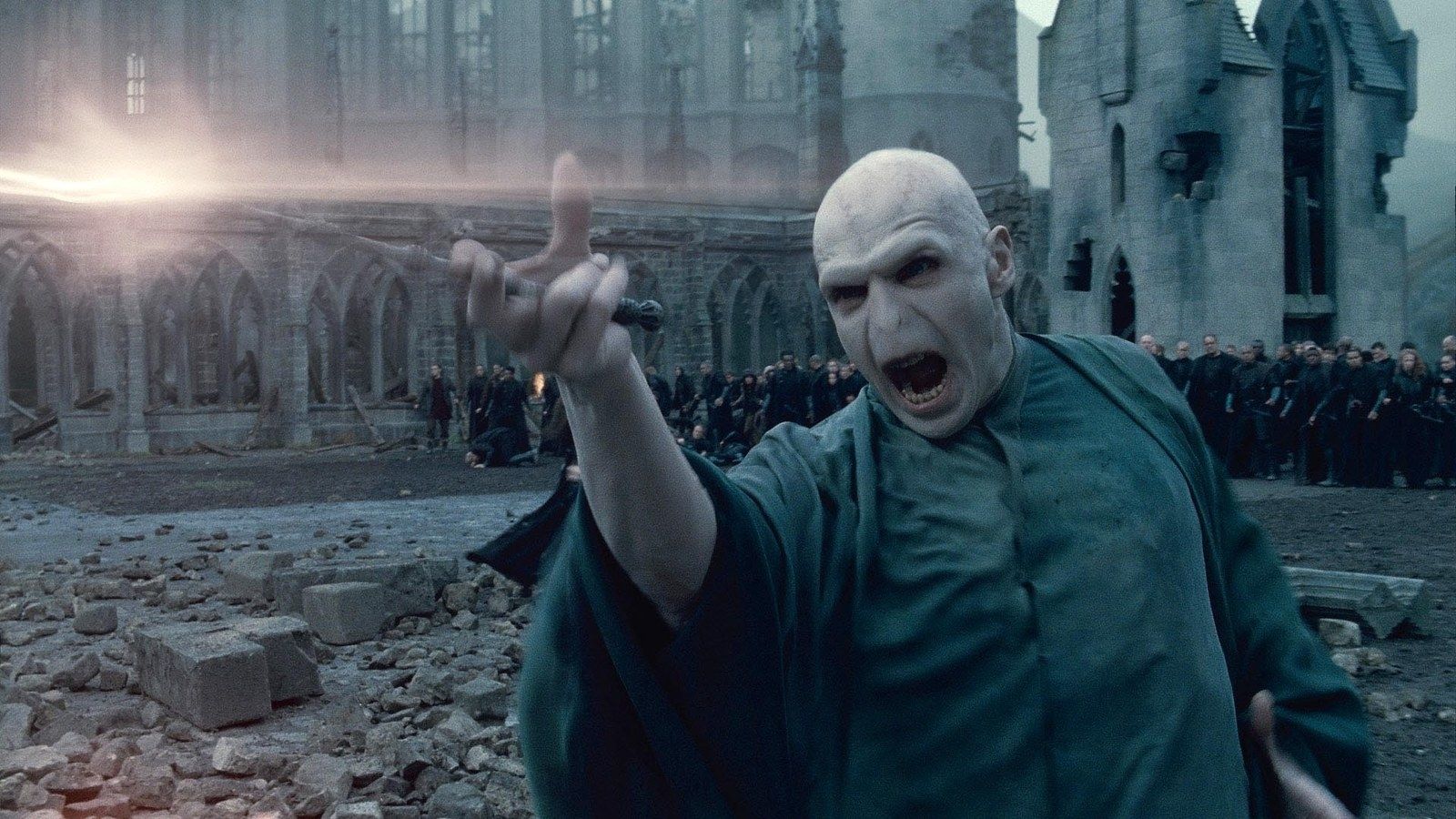The wizarding world of Harry Potter captured our hearts twenty years ago… and while a lot of the appeal of the Harry Potter series is in the characters themselves, the archetype of the "chosen one" going on a quest, and simply the excellent storytelling of JK Rowling, the biggest appeal for many is magic itself.
We’ve all dreamed of the ability to wave a literal wand and make things happen the way we want them to, so of course the idea of a secret, magical world alongside ours has a powerful pull.
Even within this world, though, magic is more complicated than a wave of a wand that fixes everything. Witches and wizards have to learn how to create and control magic, to study different forms of magic, learn how to brew potions, read the future, and say incantations in the correct form.
There are multiple different branches of magic, and any witch or wizard might find that their talents lie in one particular area… or that they are absolutely useless in another.
It’s a concept that works perfectly for the Harry Potter series, as the Golden Trio study magic itself, and as they grow powerful and capable enough to take on Voldemort himself.
From legilimency to potions, we’ve got all the kinds of magic mentioned in the series-- and how powerful they actually are-- with the 15 Most Powerful Types Of Magic In Harry Potter, Ranked.
15. Broomology
This little-mentioned branch of magic is hardly glamorous, but it’s a very necessary one. Broomology is the study and design of magical broomsticks-- and covers everything from the principles that govern flying broomsticks, to broomstick building and repair.
In many ways, this is one of the most mechanical aspects of magic, although it involves a little more than muggle car repair might. Although broomology is useful for everything from transportation to the noble game of Quidditch, it’s one of the least powerful branches of magic.
Given that there are other magical modes of transportation (and that many witches and wizards prefer the faster options like the Floo Network and simple Apparition), it could be argued that this is only truly "powerful" to Quidditch players and fans.
14. Wandlore
Wandlore is certainly one of the least flashy or exciting branches of magic, although it is vital to the practise of the magical arts. Without wandlore, though, the vast majority of witches and wizards would be incapable of most of the magic they do-- as only a few in the magical community have the ability to do wandless magic.
Wandlord deals with the magical properties of the woods and cores that are used to create wands, and the properties of the wands themselves.
Those who study wandlore can create tools of great power, although those wands then choose the witch or wizard to work with (in their own way), so even a great wandmaker may not be capable of building themselves a wand that gains them more power overall.
13. Underage/Accidental Magic
While adult wizards are careful to manage their magic and direct it only where they want it to go, children don’t have anywhere near that kind of control.
Underage wizards, and especially witches and wizards under the age of eleven, often find that their magic comes out in unexpected ways… like the time that Harry accidentally freed a snake at the zoo, or-- more disturbingly-- when Tom Riddle used his magic to frighten or hurt other children.
In some ways, this kind of uncontrolled magic can be very dangerous, as powerful children can cause real damage when they are afraid or angry. However, compared to any kind of skilled, directed magic, underage/accidental magic just doesn’t stack up in terms of power.
12. Divination
Even in the wizarding world, the ability to see the future isn’t something that can simply be learned by dedicated study. Clairvoyance is one of the few gifts in this world (like Parseltongue, for example), that some witches and wizards simply have naturally.
However, various forms of divination can still be studied and honed, and talents can be wasted or used carefully. That said, even the most powerful clairvoyants are only able to see the future in extremely vague terms.
Prophecies can be misunderstood, misheard, and difficult to interpret (as the Harry Potter/Neville Longbottom possibilities show so well). Many witches and wizards (like Hermione, who makes no secret of hating it) find it too wishy-washy to be really useful, although it is definitely interesting.
11. Herbology
The study of magical plants is comparable to Muggle botany, and isn’t a particularly powerful branch of magic, although it is a useful one. Herbologists focus on the care of plants as well as their uses, and the most common practical use of herbology is to cultivate and gather plant ingredients for potions and other branches of magic.
While a few plants do have their own inherent magical properties, these are not always the core focus of the discipline. Like the study of Magical Creatures, this branch of magic is largely about understanding and caring for other living things, and finding ways to use their magic in the works of other witches and wizards.
There’s no doubt many powerful potions wouldn’t exist without herbology, but it’s not too powerful on its own.
10. Medical Magic
The practice of medical magic can include various other forms of magical work (such as potions), as long as they are in the pursuit of improving the physical condition.
Medical magic gives the wizarding community the ability to deal with almost all muggle health complaints easily (like a broken bone or common cold), although it’s not always so effective with healing the after-effects of magical injuries (like a memory charm gone wrong, or a magical illness).
This is a very useful branch of magic, and one that is certainly a good one to know when running from and fighting Death Eaters… but it’s not one of the most powerful.
The ability to deal with a ruptured appendix without surgery is huge, but there seem to be as many magical ailments as there are muggle ones, so this is not necessarily more powerful than muggle medicine.
9. Potions
Potions, or potion-making, is a wide-ranging art, with potions being used for all kinds of applications in the magical world. Medical magic makes use of potions, and potions can even be used in lieu of other magical forms (such a polyjuice potion, which is used as a way of transfiguring a witch or wizard without needing to use transfiguration magic per se).
One of the most useful things about potions is that once brewed, they allow any witch or wizard (no matter their skill level) to utilize that magic; therefore, potions make higher forms of magic accessible even to those who are not particularly talented themselves.
There are also extraordinarily powerful potions, including love potions and poisons, that are carefully regulated-- although the majority of potions don’t fall into this category.
8. Transfiguration
Transfiguration is an exacting, complex discipline of magic, and one that focuses not just on changing what an object or creatures does (like charms), but what it essentially is.
On a more basic level, transfiguration can be something as simple as turning a mouse into a teacup (although even this is not easy magic), but at the most complicated levels, Transfiguration can alter almost anything-- with the only limitations being the skill of the witch or wizard, and an inability to restore life after death.
Transfiguration also encompasses the creation of an Animagus-- a witch or wizard who can transform themselves into an animal at will, but retain their human mind. This is extremely difficult and carefully regulated by the Ministry of Magic, which should say something about how powerful high level transfiguration can be.
7. Charms
One of the best known and most commonly used branches of magic, charms are the spells that change the properties of an object or creature-- allowing it to fly, to change mood, to be protected, etc.
Charms can be seen as a softer option, and can be very minor spells-- like Molly Weasley’s self-washing dishes. However, Charms should not be underestimated. Some of the most powerful spells in existence are charms, like the Fidelus Charm or Memory Charms.
The sheer range and usefulness of most charms is also huge, with this branch encompassing the vast majority of day to day (and even battle-worthy) magic, making this area of magic as a whole vastly powerful… although obviously, not every charm carried great power individually.
6. Arithmancy
Many casual fans of the Harry Potter series don’t have a good idea of what, exactly, arithmancy is-- other than knowing that it was one of the many subjects Hermione took and has something to do with numbers.
For many, it’s seen as a sort of magical calculus… which isn’t too far off. Arithmancy is a form of magical numerology and divination, often used to predict the future.
However, the real power of Arithmancy lies in its connections to the creations of new spells. Spellcrafting is a complicated subject that isn’t deal with in great detail in the Harry Potter series, but Arithmancy is a big part of it, meaning that someone truly gifted in this branch of magic will have a stronger ability to create entirely new magic-- and that is real power.
5. Alchemy
Alchemy isn’t a subject taught to everyone at Hogwarts school of witchcraft and wizardry, although it can be an option for higher-level students if there is demand.
Linked closely to potions and transfiguration, Alchemy is the study of the basic elements and the transmutation of matter - complex, very scientific (as far as magic is concerned), and difficult to master.
However, there is great power in Alchemy, because a true master of this branch of magic is also a master of death, thanks to the Philosopher’s Stone. An alchemical legend, the stone allows the user to brew the Elixar of Life, as well as to turn any metal into pure gold-- making the wizard who accomplishes its creation rich and functionally immortal.
While it's not useful in a battle, it's incredibly powerful in a different sense.
4. Legilimency/Occlumency
These arts are two sides of the same, telepathic coin. Legilimency is the magical ability to read minds (in essence), to dig into the mind of another human in order to discover their true intentions or to uncover memories.
Occlumency is the art of closing off the mind in order to stand up to a Legilimens. There are a few ways that both of these can be accomplished, and some can probe the minds of others with great delicacy, leaving their target almost unaware that it has happened.
Others need to barge into a mind, something that can be painful-- which some Legilimens don’t mind, of course. Both of these arts can be extremely useful, and take quite a bit of skill, but reading minds isn’t the same as changing them, making it less powerful than many other arts.
3. Wandless Magic
The vast majority of magic in the wizarding world of Harry Potter requires the use of a wand, and much of it also requires the use of other tools, items, or spoken words.
However, some wizards are able to perform specific magic without the use of these things-- from non-verbal spells (which are relatively common) to wandless magic, which is extremely rare.
If a wizard has the skill to do magic without a wand, however, it makes them extremely powerful-- there is no fear that they will be helpless if their wand is lost, or broken, and they can use spells at the speed of thought, without needing to make any kind of wand movement at all.
This also means that in duels or battles, it is impossible for an adversary to know what they are planning to do, making this a rare but extremely powerful form of magic.
2. Time Travel (Time Turners)
Obviously, the ability to alter time itself is one of the most powerful forms of magic that there is-- so much so, in fact, that Time Turners are heavily regulated by the Ministry of Magic.
While there are those people who will carefully alter only the smallest details in order to do something productive (like Hermione and her use of a Time Turner to study more subjects than would otherwise be possible), the temptations to change major events would simply be too much for the vast majority of witches and wizards (as we saw in Harry Potter And The Cursed Child).
The older Time Turners are also dangerous to the witch or wizard themselves, as staying in the past for more than a few hours can have devastating effects.
1. Dark Magic
In many ways, this is not truly a separate branch of magic-- it is the use of any of the other branches of magic for dark purposes. This form of magic takes those spells that can be useful and turns them into tools to hurt, or even to kill others.
Poisons, curses, hexes, and jinxes are classified as Dark Magic, although these can range from the kind of hexes that schoolkids use as pranks (like the Bat-Bogey Hex) to the illegal Unforgivable Curses that torture, control, and kill.
Dark Magic is, unsurprisingly, one of the most powerful forms of magic there is-- this is in part due to the power of the spells themselves, and in part due to the witch or wizard who uses truly Dark Magic does not care about the limitations of magic for the safety of others, only for their own gain.
---
What do you think? Do you know of any other forms of magic in Harry Potter that are extremely powerful? Have your say in the comments!

